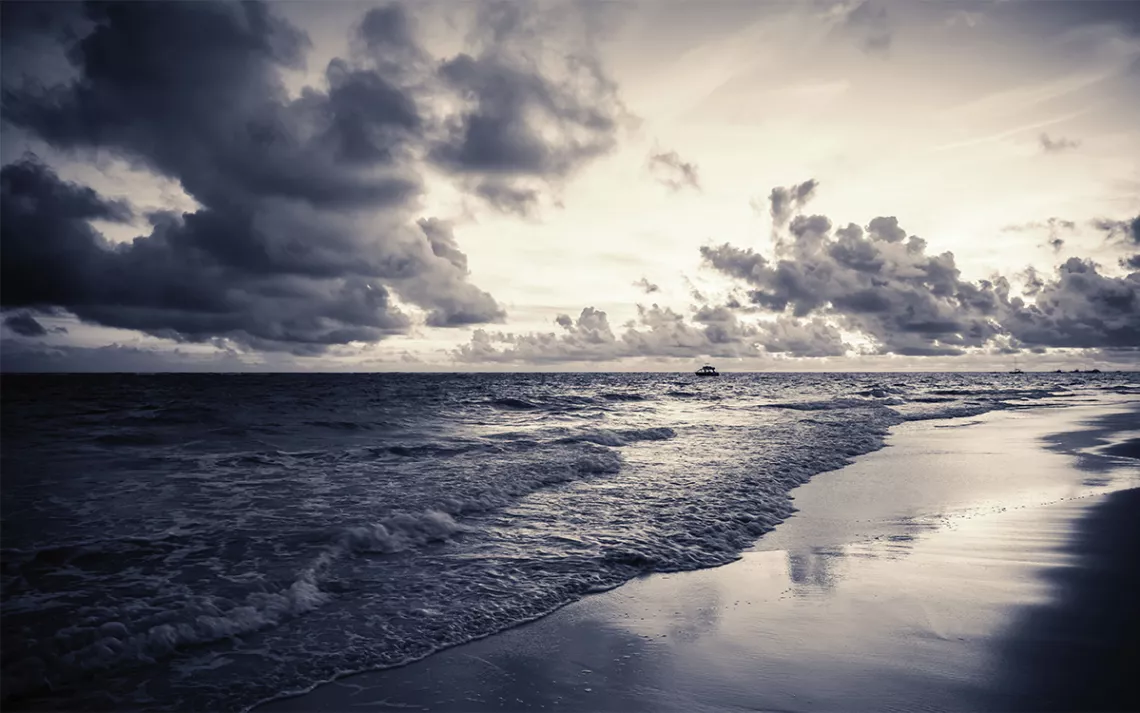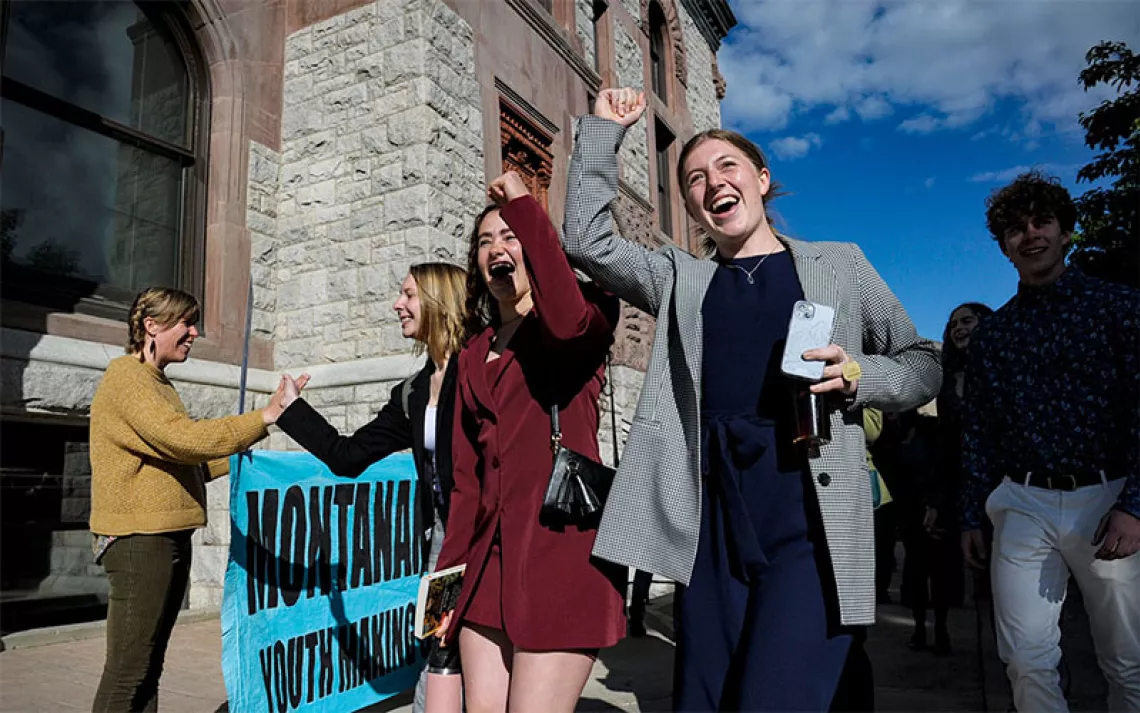Climate Change Is a Women’s Issue, Too
It’s time Congress passed a Women and Climate Act

Hurricane Irma photo by eugenesergeev/iStock
Last year, the United States and our neighbors in the Caribbean suffered devastation from Hurricanes Irma, Harvey, and Maria. Communities were razed, infrastructure was destroyed, and the livelihoods built by generations were washed away. In the aftermath, millions were left without food, water, electricity, or shelter. In California, our North Bay neighbors watched their communities burn to the ground in deadly wildfires. 2017 was the costliest and most devastating year for natural disasters in the history of our country.
And we’re still picking up the pieces. Nearly half of Puerto Ricans are still without power, and some residents there are struggling to find clean drinking water and safe shelter. Many residents of the U.S. Virgin Islands are still living in tents months after the hurricanes passed. In California’s wine country, communities are in mourning for the dozens of lives lost, and many residents have been forced to leave as they cannot afford to rebuild their homes. The Federal Emergency Management Agency has scaled back critical aid, and many communities still lack the resources they need to rebuild. Let me be clear: This is a modern humanitarian disaster in our own country.
But it’s not just happening here. All around the world, communities are grappling with the reality of climate change. As Republicans in Congress deny the reality that our planet is changing due to human activities, families are enduring record heat waves, floods, storms, and droughts. In some communities, residents have fled these changes in search of more forgiving climates.
According to a recent UN report, climate change and its effects have a disproportionate effect on women. While no one is immune from the ravages of climate change, women are among the most vulnerable. Women serve as the leaders of their families, but they still suffer from rampant discrimination and unequal opportunities. These inequalities become even more pronounced in the face of changing climates, and women are more likely to become victims of scarcity, drought, food insecurity, and increased disease.
Now is an important crossroads, a time for all of us to take action to address climate change and its effects on our society at every level. There is a profound disconnect between those who dictate policy and those whose lives and livelihoods are directly impacted by the decisions made in the halls of government.
The Trump administration refuses to acknowledge climate change and is removing any scientific evidence of climate change from the public eye. But even as the administration denies the reality that surrounds us, Congress can and should take action to address this global emergency. And, in order to succeed in this fight, we must take an approach that is intersectional and inclusive.
We must fight for justice and equality for those whose lives are most impacted by these decisions: women in indigenous communities, those living in poverty, and communities of color. Women deserve a seat at the table when these decisions are made. That’s why I introduced HR. 4392, the Women and Climate Act of 2018.
Women have influential roles in their communities and their families. However, they are all too often excluded from key policy decisions. If we want to alleviate climate change and develop sustainability initiatives, we need to include and empower women. We need to make women an essential part of the decision-making process. My legislation does exactly that. By bringing the right people to the table and mandating climate- and gender-sensitive policies across our government and in our diplomatic initiatives, I know we can turn the tide in the fight against climate change.
Even in our own country, women have been disproportionately hurt by climate change. We need to look no further than the aftermath of Hurricane Maria to see the unique challenges that women face. Women make up 52 percent of the population in Puerto Rico. Even before the hurricane, Puerto Rico had higher rates of women living in poverty than men according to Center for American Progress. In the aftermath of the disaster, gender inequalities worsened as society and resources eroded. Women suffered from increased violence and lack of access to health and hygiene care. At the same time, they were still expected to bear the majority of caregiving responsibilities for their families, including children and the elderly.
In the neighboring U.S. Virgin Islands, women face similar conditions as they struggle to provide for their families after their communities have been decimated by the storms. According to reports by the Washington Post, 18,500 homes and businesses were destroyed, and families are sleeping in tents waiting for assistance to rebuild. But the hurricanes stripped the islands—decimating its economy, education, and health systems—and the local government cannot provide the vital aid or recovery efforts without an additional $7.5 billion from the U.S. federal government.
Puerto Rico and the U.S. Virgin Islands are not unique cases. Research shows that after disasters, women are often subjected to greater sexual and domestic violence and lack access to care. At the same time, women still shoulder the burden of serving as caregivers for other members of their communities. According to the International Union for Conservation of Nature (IUCN), women are 14 times more likely to die during a climate disaster. And because of biological differences, younger and pregnant women are more likely to suffer from malnutrition from unstable food supplies after disasters, according to the UN Office for Disaster Risk Reduction.
However, women should not be treated as vulnerable victims. Women are powerful agents of change who can help turn the tide of climate change. Women’s efforts to bring sustainability policies to their communities are more than just admirable—this work is essential to address climate change within our own borders and overseas.
The events of the past year have shown people around the world the power of mobilized women to create change. The work around climate change should be no exception. It’s time to empower the women who have been leading on environmental justice for decades and give them a seat at the table. I am incredibly proud and grateful for support from the Sierra Club and Planned Parenthood on my bill, and I’m calling on my fellow members of Congress to support my bill and join me this fight.
 The Magazine of The Sierra Club
The Magazine of The Sierra Club



